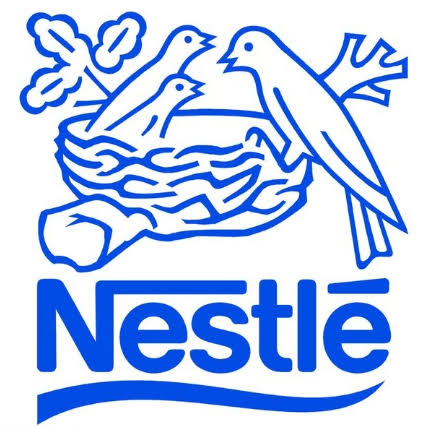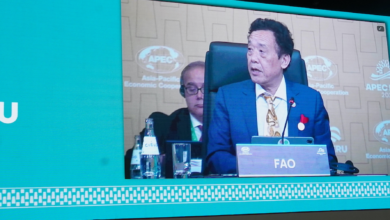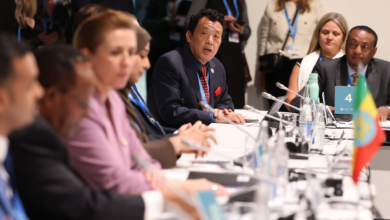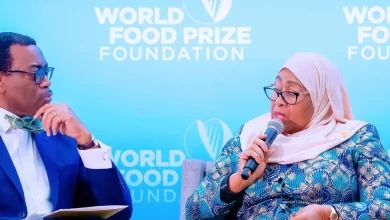COVID-19: Global cocoa/chocolate companies support cocoa farmers with $835,000

The Global cocoa and chocolate companies have donated $835,000 to help cocoa farmers and their families fight the spreading coronavirus by supporting the national emergency plans of governments in West Africa, Asia, and Latin America.
According to report by nestle-cwa.com, coming on top of numerous individual company contributions and help to farmers, most of the money will go to Côte d’Ivoire and Ghana, the biggest cocoa producers. It will also support health efforts in other major origin countries, including Brazil, Cameroon, Ecuador and Indonesia.
The resources will be directed to leading international relief organizations operating in line with priorities set by the national governments, including CARE, International Federation of Red Cross and Red Crescent Societies, and Lutheran World Relief.
“All of us in the cocoa supply chain are connected, from the cocoa farmer to the chocolate maker. This fund-raising effort shows the cocoa and chocolate industry is united in our goal to help farmers and their families fight the virus and save lives in cocoa-growing communities around the world,” said Richard Scobey, President of the World Cocoa Foundation (WCF).
Governments in West Africa, Asia, and Latin America are taking the critical steps to protect their citizens, but their health and social safety net systems need more support. Cocoa-growing communities are particularly at risk since they cannot easily access clean water, health care, and social safety nets.
The global fund-raising effort by companies comes on top of other efforts to fight the virus by the industry. Many of the large cocoa and chocolate companies are making major financial contributions to international relief and humanitarian organizations. These commitments already total hundreds of millions of dollars and are supporting the emergency response around the world.
Many companies have been working for more than a month now with their suppliers to support local relief efforts and help the governments contain the spread of the virus and save lives. In close collaboration with governments and humanitarian relief organizations, companies are donating critical emergency supplies such as soap, sanitizers, clean water equipment, and medical goods. They are broadcasting the government’s health care messages through their farmer communication channels and farmer training platforms. They are distributing copies of government coronavirus posters and other information in rural communities.
More than 30 companies and organizations from around the world contributed to this industrywide response, including Altinmarka, the Association of the German Confectionery Industry (BDSI), August Storck KG, Barry Callebaut, Blommer Chocolate Company, Cargill Cocoa and Chocolate, Carletti, Cémoi, Clasen Quality Chocolate, CWT Europe B.V, ECOM, Ezaki Glico Co., Ltd., Fine Chocolate Industry Association (FCIA), German Initiative on Sustainable Cocoa (GISCO), GCB Cocoa, Guittard Chocolate, Intercontinental Exchange, JB Cocoa, Lindt & Sprüngli, Luker Chocolate, Mars Wrigley, Mondelēz International, Nestlé, Olam Cocoa, Pit Süßwaren/Becks Cocoa, Ritter Sport, Seattle Chocolate, the Swiss Foundation of the Cocoa and Chocolate Industry, SUCDEN Cocoa, The Hershey Company, Touton S.A., Whittaker’s, and WCF.
The industry response was spearheaded by the Association of Chocolate, Biscuit and Confectionery Industries of Europe (CAOBISCO), BDSI, the European Cocoa Association (ECA), the Federation of Cocoa Commerce (FCC) and WCF.
In another development, Nestlé is supporting more than 850,000 vulnerable people in Central and West Africa as part of a USD 3.4 million effort to help countries in the region fight COVID-19.
At a time when hunger is a growing concern, the company is donating nutritious food and beverages to 170,000 families, corresponding to 850,000 people, across the region in Angola, Burkina Faso, Cameron, Gabon, Mali, Niger and Nigeria.
Nestlé is also contributing masks and other personal protective equipment (PPE) to keep frontline health workers safe.
The company is also donating medical equipment to hospitals in Burkina Faso, Côte d’Ivoire, Ghana and Senegal. Additionally, in Burkina Faso, it will donate three ventilators, for use in intensive care units.
Efforts to reduce the transmission of the COVID-19 virus will be carried out in partnership with the International Federation of the Red Cross and Red Crescent Societies (IFRC).
“We’re offering our full support to families across Central and West Africa during these challenging times, and to those who are battling to keep them safe,” said Rémy Ejel, CEO of Nestlé Central and West Africa Ltd.
“Nestlé has been present in Central & West Africa for more than 60 years. We live and operate in these communities across the region, so we are committed to help in any way that we can”. Mr Ejel said.
Contributing to improving sanitation
Through its partnership with the IFRC, the company will contribute close to USD 420,000 to strengthen Water, Sanitation and Hygiene (WASH) activities in Burkina Faso, Côte d’Ivoire, Ghana and Senegal.
The donation to the IFRC, which is part of the total relief effort in the region, includes cash donations and supply of medical and other equipment.
The two partners aim to limit the transmission of the virus by improving hygiene practices in public areas such as bus stations and in communities where WASH infrastructure is lacking.
In addition, they will join forces to sensitize people about prevention measures and the importance of eating safe and nutritious foods.
Providing affordable accessible nutrition
Nestlé in Central and West Africa is committed to ensuring people continue to have access to safe, affordable and nutritious foods to feed their families in these uncertain times.
Production has continued at Nestlé sites in the region, despite the challenges faced.
Nestlé has implemented enhanced hygiene protocols and additional safety measures for the frontline staff working at its ten factories, its distribution centres and its sales offices.
PPE has also been provided to suppliers, distributors and retailers, including MAGGI ‘Mammies’ and ‘Pappies’ working in open markets.
“We are doing all we can to ensure that our employees, contractors and partners remain healthy and safe. This is our number one priority” said Mr Ejel. “We are so grateful for their efforts and their determination to keep supplying our communities with food and beverages, despite the challenges.”





